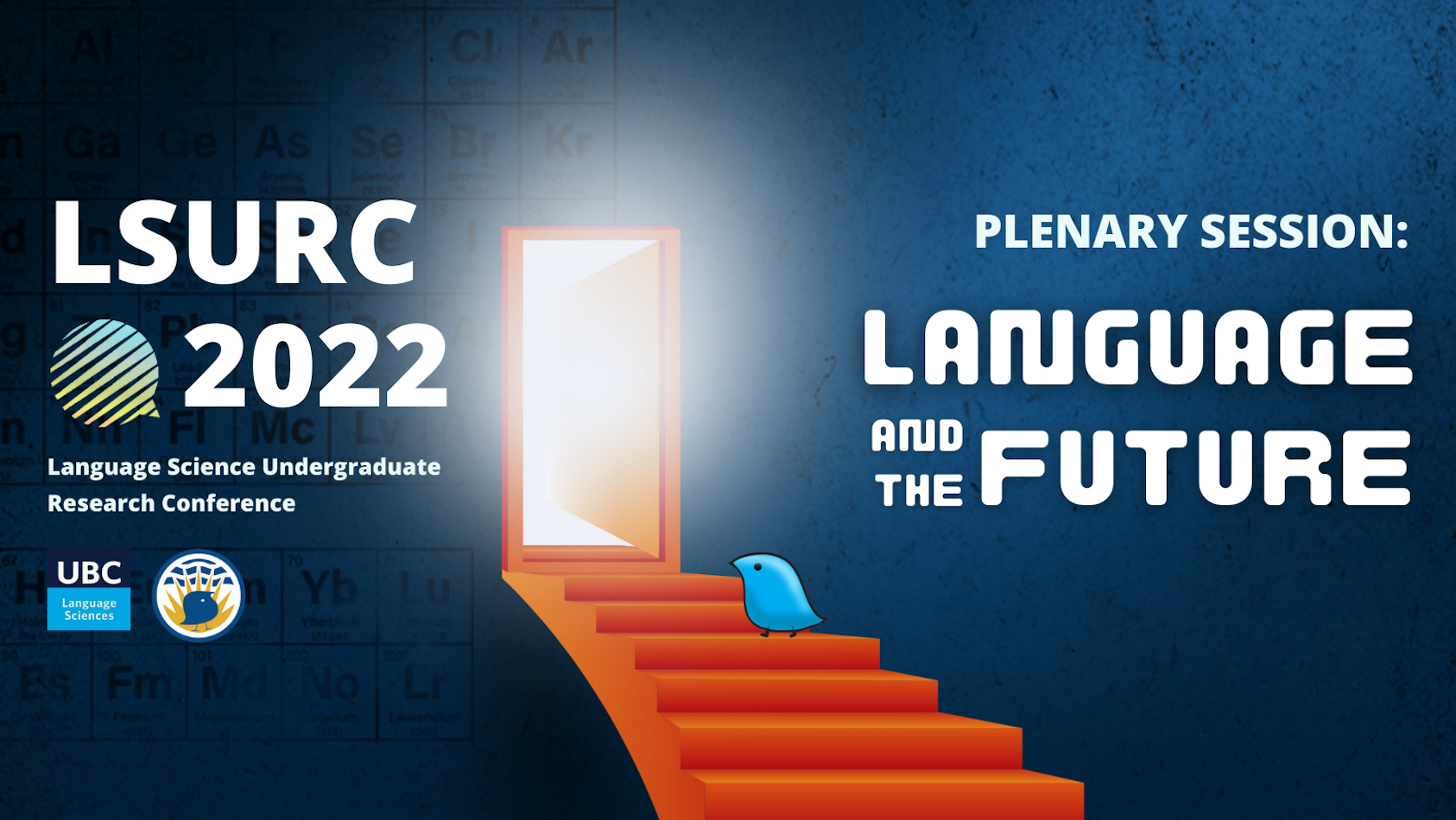For the past six years, the Language Sciences Undergraduate Research Conference (LSURC) has been providing undergraduate students with the opportunity to explore language and communication research, and practice the skills required for presenting and speaking publicly in a formal academic setting.
This year’s interdisciplinary language-focused conference was held in a virtual format, and LSURC Co-Chair, Sarah Lafleur, a fifth-year Speech Sciences and Philosophy student at UBC and former LSURC Human Resources Consultant, shared that one of the benefits of running the conference virtually was the wider reach and enhanced accessibility for both presenters and audience members.
“When the conference was in-person we’d have people from other schools reach out who would have loved to present but it didn’t always work out,” said Lafleur. “Having it online you have a much wider reach because you have people outside of UBC and the lower mainland presenting and tuning in to watch.”
Lafleur also explained that there are so few opportunities for undergraduate students to present their research, that if an opportunity arises students shouldn’t hesitate to take it.
“Being able to get this experience as an undergraduate is really valuable, because sometimes it feels like you have to wait for your graduate programs to have a formal experience like this,” said Lafleur.
Rebekah Wong, a second year SFU student joint majoring in Computing Science and Linguistics, presented her research titled, ‘The Perception of Quantifier Raising in Japanese-English Bilinguals’ for the first time at LSURC and was grateful to have the opportunity to not only learn about the research that others are doing, but also to refine her public speaking skills.
“The public speaking portion was so valuable because it isn’t something I’m too confident in, but being able to present was great to get that experience,” said Wong. “I know public speaking can be daunting, but the people at LSURC are genuinely interested in what you have to say and what research you’ve been doing. You’re the expert in your field because you’re the one who’s spent the time doing the research.”
Former LSURC Chair, Nicole Ebbutt, who is in her final term at UBC and majoring in Speech Science, presented a poster at the conference titled, ‘Prosodic Characteristics of English Speakers with Alzheimer’s Disease’. She shared that her experience with LSURC has always been positive, both on the organizing committee and as a presenter, and that she encourages other students to participate in any way they can.
“LSURC is one of the friendliest and unintimidating conferences that I’ve ever been a part of,” said Ebbutt. “All of the staff who are reviewers and adjudicators are just really excited to see the research and the people presenting. Yes, they are grading based on a rubric, but they really want to provide constructive feedback to help you improve.”
Anna Sukhikh, LSURC Co-Chair and fourth year Linguistics and French student who was also Administrative Coordinator at last year’s conference, said that the experience organizing the conference enhanced her skills in leadership and team building.
“Being a Co-Chair boosted my leadership skills since organizing a conference is all about delegation, trust and getting things done. I finally learned to divide responsibilities instead of doing most of the work myself,” said Sukhikh. “I also made new friends who share my interests. All in all, I truly enjoyed being a part of the organizing committee.”
The goal of LSURC is to create an opportunity for undergraduate students to explore, through the work of their peers, language and communication research with an interdisciplinary perspective, and Wong shared that presenting at LSURC allowed her to meet other people with similar interests in Linguistics and opened her eyes to future possibilities.
“I think research is really interesting and LSURC definitely gave me the opportunity to explore areas of Linguistics that I may not have otherwise been able to explore,” said Wong. “Now I’m definitely interested in conducting more linguistics research in the future and it’s something I want to look into after my undergrad.”
Learn more about the Language Sciences Undergraduate Conference here.
Written by Kelsea Franzke
